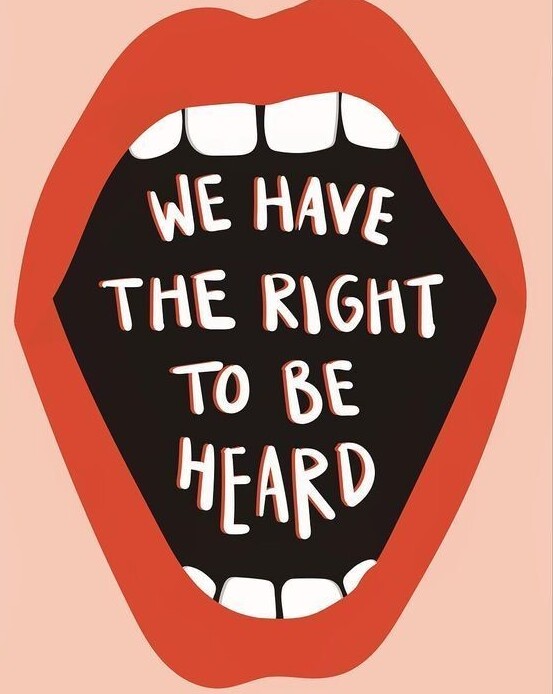Empowering South Asian Women: Stories Of Activism And Change

Empowering South Asian Women: Stories of Activism and Change
When we think of empowerment, especially in the context of South Asian women, we’re not just talking about individual success stories; we’re diving into a rich tapestry of activism, resilience, and transformation. These are the stories that don’t just inspire—they ignite movements, shift societal norms, and pave the way for future generations. The women at the heart of these stories aren’t just participants in change; they are the catalysts driving it forward.
Roots of Resilience: Drawing Strength from Tradition
South Asian culture is a complex blend of tradition and modernity, where deep-rooted customs often shape the roles and expectations of women. But within these traditions, there’s also a hidden strength—a resilience that South Asian women have harnessed to fuel their activism.
Take, for instance, Phoolan Devi, the “Bandit Queen” of India, whose story is one of defiance against systemic oppression. Born into poverty and subjected to brutal violence, Phoolan rose against her oppressors, eventually becoming a member of Parliament. Her life story is a testament to the resilience found within South Asian culture—a resilience that can be transformed into a powerful force for change.
Phoolan’s journey from a life of hardship to one of activism and leadership demonstrates that empowerment doesn’t always mean rejecting tradition; sometimes, it means using the strength of one’s roots to grow beyond them.
Breaking Barriers: The Power of Education
Education has long been recognized as a key driver of empowerment, and for many South Asian women, it’s been the gateway to breaking free from societal constraints. Activists like Malala Yousafzai have shown the world that the fight for education is far from over, especially in regions where girls are still denied the right to learn.
Malala’s story is now globally recognized—a young girl from Pakistan who was shot by the Taliban for advocating for girls’ education, yet survived to become a Nobel laureate and a global symbol of resistance. Her activism has inspired countless others, turning what could have been a story of tragedy into one of triumph.
Her message is clear: education is not just a right; it’s a weapon in the fight for equality. Malala’s journey reminds us that when women are educated, they are empowered to break the chains of oppression and contribute to the betterment of society as a whole.
The Intersection of Rights: Fighting for Justice
In South Asia, the fight for women’s rights often intersects with other struggles—be it for caste equality, religious freedom, or economic justice. Women like Ruth Manorama, a Dalit rights activist in India, have shown that empowerment is not a single-issue fight. Ruth’s work has focused on advocating for the rights of Dalit women, who face both gender and caste-based discrimination.
Her activism highlights the importance of addressing the unique challenges faced by marginalized women in South Asia. Ruth’s story is one of relentless pursuit of justice, proving that empowerment must be inclusive, taking into account the multiple layers of identity that define South Asian women’s experiences.
By bringing attention to the intersectionality of oppression, Ruth has helped create a broader, more inclusive movement for women’s rights in South Asia—one that recognizes the diverse challenges faced by women across different backgrounds.
Voices of Change: Speaking Truth to Power
The power of storytelling cannot be underestimated in the fight for empowerment. South Asian women activists have used their voices to bring light to issues that were once silenced by fear or taboo.
Kamla Bhasin, a feminist activist and poet from India, is one such voice. Through her poetry and grassroots organizing, Kamla has challenged patriarchal norms and inspired women to reclaim their power. Her work with organizations like Sangat has been instrumental in mobilizing women across South Asia to stand up for their rights.
Kamla’s approach is not just about confrontation; it’s about transformation—using culture, art, and community as tools to reshape society. Her story is a powerful reminder that activism can take many forms, and that the pen can be just as mighty as the protest.
Economic Empowerment: The Ripple Effect
Economic independence is a crucial aspect of empowerment, and South Asian women have been at the forefront of creating opportunities not just for themselves, but for others as well. Social entrepreneurs like Kalpana Saroj, often called the “original Slumdog Millionaire,” have shown that with determination, women can overcome even the most challenging circumstances.
Kalpana’s journey from the slums of Mumbai to becoming a successful businesswoman is a story of grit and perseverance. She took over a bankrupt company and turned it into a multimillion-dollar empire, all while advocating for the rights of underprivileged women.
Her story isn’t just one of personal success; it’s about creating a ripple effect—empowering other women to rise up and seize economic opportunities. Kalpana’s activism is a testament to the idea that when women succeed economically, they lift entire communities out of poverty.
A Tapestry of Transformation
The stories of these women are threads in a larger tapestry of activism and change. Each story is unique, yet they all share a common goal: the empowerment of South Asian women. Whether through education, economic independence, or the fight for justice, these activists have shown that change is not just possible—it’s inevitable.
Their stories are reminders that empowerment is not a destination but a journey—one that requires courage, resilience, and a relentless commitment to justice. As these stories continue to unfold, they inspire new generations of South Asian women to take up the mantle of activism and continue the work of transforming society.
In the end, the tapestry of empowerment woven by these stories is one of hope, strength, and unwavering belief in the power of women to shape their own destinies.
Empowering South Asian Women: Stories Of Activism And Change
Meet the incredible South Asian women who’ve taken the world by storm with their activism. These trailblazers from the region are rewriting the rulebook on what it means to fight for justice. They’re not just dealing with the usual societal pressures but are also tackling specific cultural and regional challenges. Despite these obstacles, they’re making magic happen and creating real, lasting impact. Get ready to be inspired by their incredible journeys.
First up, there’s Malala Yousafzai. You might know her as the young girl who survived a Taliban attack to become a global symbol for girls’ education, but her story is so much more. Battling fear and adversity with remarkable courage, she’s shown the world that age and background don’t define the ability to create change. Malala’s journey from a valley in Pakistan to the halls of the Nobel Peace Prize ceremony is both humbling and empowering. Her advocacy isn’t just about ensuring education for all girls but also about proving that one voice can indeed make a difference.
Then there’s Kiran Bedi, India’s first female officer in the Indian Police Service. Breaking through the thickest glass ceilings in a male-dominated field, she took on corruption and human rights violations head-on. Her innovative policing methods and unswerving dedication to justice earned her a reputation as a fearless leader. Whether it was prison reforms or fighting against crime, Kiran’s efforts have transformed countless lives and inspired many women to join the force.
Another powerhouse is Bangladesh’s Sheikh Hasina, who has been a pivotal figure in her country’s political landscape. Under her leadership, there’s been a push towards progressive policies, economic development, and significant strides in women’s rights. Her resilience in the face of multiple assassination attempts and political unrest showcases not just her strength but also her unwavering commitment to her country’s growth and prosperity.
In Sri Lanka, Dr. Radhika Coomaraswamy has been a formidable figure championing human rights and gender equality. Her work as a lawyer and United Nations Special Rapporteur has focused on highlighting issues faced by women and children in conflict zones. By bringing global attention to these critical issues, she has played a key role in advocating for international policies aimed at protecting the most vulnerable populations.
These stories aren’t just tales of individual heroism but are testimonies to the power of persistent, brave activism. They highlight the unique challenges faced by South Asian women and how breaking traditional norms isn’t just possible, but necessary for progress and social change. From fighting for education, and justice, to leading nations and championing human rights, these women are showing that activism is a powerful tool for transformation.
The Ripple Effect – How South Asian Women’s Activism Transforms Communities
Activism led by South Asian women isn’t just about individual achievements. It creates a ripple effect, transforming entire communities. When these women take a stand, they inspire others around them to do the same, leading to a collective movement for change.
Take the grassroots initiatives started by women in rural India to improve access to healthcare. These women, often overlooked and underestimated, have banded together to travel to remote areas, educating their communities about hygiene, maternal health, and preventive care. Their efforts have not only saved lives but have empowered others in their villages to take ownership of their health. It shows that activism at the community level can create sustainable change.
In Nepal, female activists have been pivotal in bringing attention to human trafficking. By forming support networks and creating awareness campaigns, they’ve mobilized entire villages to stand against these injustices. Their work doesn’t just stop traffickers; it educates and empowers communities to protect their children and advocate for safer environments.
Sri Lanka’s women-led movements for peace and reconciliation have been instrumental in healing post-war communities. Women activists have taken leading roles in dialogues and peacebuilding activities, fostering understanding and unity. Their efforts demonstrate that women’s perspectives are crucial in creating lasting peace and stability.
Pakistan’s female educators and social workers have shown that education is a powerful tool for community transformation. By setting up schools, vocational training centers, and literacy programs, they’ve opened doors for countless girls and women. These initiatives are about more than just education; they’re about giving individuals the confidence and skills to improve their circumstances and contribute to their communities.
The activism of South Asian women isn’t just about facing and overcoming challenges; it’s about creating a legacy of empowerment and resilience. When women step out of traditional roles to become change-makers, they bring their unique perspectives and solutions to the table. This diversity in thought and action is what drives real, sustainable progress.
The continued efforts of these women illustrate that the fight for equality, justice, and better living conditions isn’t just an individual battle. It’s a communal journey. Each step taken by an activist doesn’t just impact their life; it sends waves through their community, inspiring and enabling others to follow suit. It’s about building a future where every girl and woman feels empowered to pursue her dreams and make a difference.
